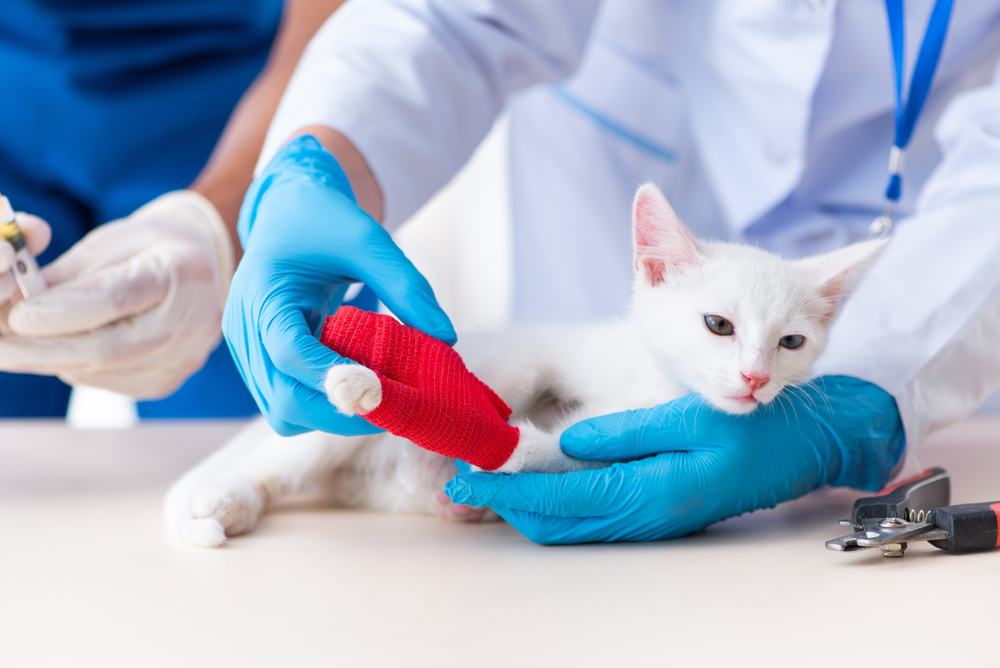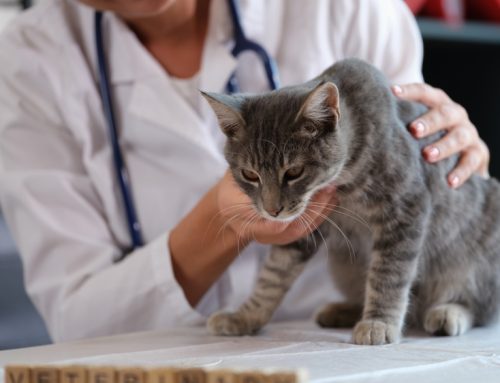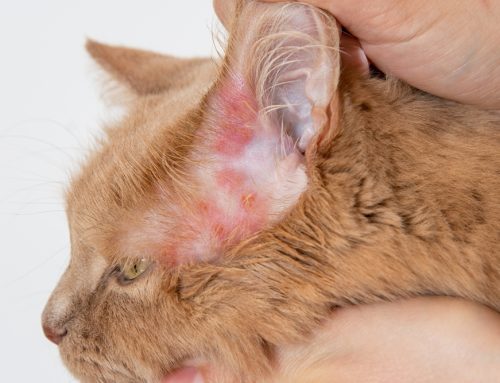No matter how much they love and trust you, your dog or cat may still act instinctively when they’re not feeling well and hide away or disguise their problems, just as their ancestors did to discourage predators.
This means that you, their pet owner, must be able to decipher their body language and differentiate the signs that indicate emergencies, as well as those that are serious but can wait for an appointment with a veterinarian. Our Chiefland Animal Hospital team wants you to recognize that your cat or dog is signaling that they need veterinary care.
1. Pet emergencies
Take your pet to the veterinarian immediately if they experience any of the following:
- Severe bleeding or trauma following an accident
- Fractured limbs
- Choking
- Respiratory distress
- Seizures or unconsciousness
- Possible poisoning
- Eye injuries
- Heatstroke
2. Changes in eating and drinking
Changes in these everyday functions do not usually require emergency treatment, but they can be serious. If your pet’s appetite suddenly increases, they may be stressed, lacking proper nutrition, or infected with an intestinal parasite, while a sudden loss of appetite may indicate a bacterial or viral infection, kidney or liver disease, diabetes, or cancer. Recurring or severe vomiting episodes indicate that your pet may have a gastrointestinal infection or that they ate something they shouldn’t have—for example, something they found in the trash.
Pets who are always thirsty and drink a lot more than usual or who suddenly decrease the amount they drink could also have a problem, such as kidney disease, diabetes, or a urinary tract infection.
If your cat or dog suddenly loses or gains weight without any changes in their diet, eating, drinking, or amount of exercise, that may point to a thyroid issue or metabolic disorder. Monitor your pet’s weight and call your veterinarian if they lose or gain more than 10% of their body weight in a short period.
3. Dental problems in pets
Periodontal disease is common, and most dogs or cats show some signs by age 3. This disease requires prompt treatment to prevent worsening and causing not only tooth loss, tooth root abscesses and infections, and oral cysts or tumors, but also kidney, liver, and heart muscle changes.
4. Skin and coat issues in pets
Skin irritations can manifest as lumps, bumps, rashes, hair loss, reddened skin, changes in skin texture, or intense itching and scratching. These signs can indicate infections, systemic diseases that affect skin and coat health, or allergies to fleas, food, or environmental elements, such as pollen, dust mites, or mold.
Stay alert for fleas and ticks, which run rampant in spring and summer. Launder your dog or cat’s bedding and other household items where they rest, and use pet-safe flea- and tick-control products in your house and yard. Flea and tick sensitivities and the diseases they cause (e.g., flea allergy dermatitis, Lyme disease from ticks) are easily prevented, so ask your veterinary team for help choosing the best prevention products for your pet.
5. Changes in your pet’s toilet habits
When you take your dog on a walk and notice they are constipated or straining to defecate or urinate, you should be concerned, especially if they’re in their senior years. A dog who frequently needs to urinate could have an infection, bladder stones, or an endocrine disorder. A cat who visits the litter box frequently, urinates only a small amount, or has blood in the urine may have a urinary disease, while cats who urinate a large amount of urine may have a hormonal or kidney problem. Cats who repeatedly eliminate outside the litter box and dogs who use the house as their bathroom may have a medical or emotional issue and need veterinary attention.
6. Pets who change their general behavior

Pets who show sudden aggression, anxiety, or irritability may be suffering with pain, stress, or an underlying health issue, such as age-related cognitive decline, hormonal changes, or neurological disease. If you can’t explain your playful pet’s sudden loss of energy or behavior changes, ask your veterinarian for help.
Pets normally spend more than half the day asleep, but your normally active dog who suddenly becomes extremely lethargic could be signaling heart problems, liver problems, diabetes, or hypoglycemia. In lethargic cats, the cause could be something as simple as a reaction to a recent vaccination or something serious, such as low blood sugar, anemia, a lower urinary tract infection, or cancer.
Never hesitate to schedule an appointment with our Chiefland Animal Hospital team if your pet shows any of these changes, because we want them to get the care they need as quickly as possible. We treat your pets like the family members they are.








Leave A Comment